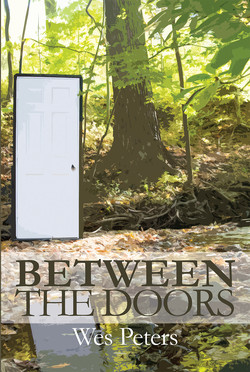Читать книгу Between The Doors - Wes Peters - Страница 6
На сайте Литреса книга снята с продажи.
Оглавлениеforeword
Between the Doors is a fantasy story, replete with castles and towers, lords and ladies, magic and wizards, even zombies and “crawlies.” Passing through one door, young Andrew Tollson, armed with an old revolver he has found lying by the wayside, leaves his New Jersey home and enters a fantastic realm of good, evil, and everything in between. When there, he becomes a gunslinger with just one round of six bullets at his disposal. Accompanied by his newfound friend, Nick, Andrew then embarks on an exhilarating series of adventures, acquiring four more friends on the way, as he endeavors to save this world from the evil magic of a dark wizard who controls and corrupts it. What happens to him is full of surprises, and you’ll find his story a true page-turner.
Like all good fantasy stories, however, this one does more than simply tell a tale of faerie adventure. In its depiction of a parallel reality, it reveals something important, even essential, about our own world. In this case, that something is a truth found in a great deal of both realistic and fantasy literature. As old as the proverbial hills, it’s the realization that, as Nick tells Andrew, home is “where we’re all heading anyway.”
The return home is something of a literary archetype, and as many commentators have observed, fantasy literature is at heart a genre of archetypes. Ursula Le Guin, a widely acknowledged master of the genre, insists that true fantasy needs be a “journey,” with the trappings of dragons or knights, dungeons or witches, disguising the archetypes by seducing readers into participating in what she insists “are dangerous things.” The danger, Le Guin suggests, comes from the fact that archetypes bring us as readers perilously close to home—which in fact is Andrew Tollson’s story. The real journey in Between the Doors is thus not the physical one that Andrew, Nick, and their companions take, but rather the intimate, internal one that Andrew shares with us as we read.
If this sounds heavy-handed or oppressive, be assured that Wesley Peters narrates Andrew’s tale with a deft hand. As you read, Le Guin’s dangers will never seem much of a threat, the seduction or disguise provided by the story’s fantastic trappings being simply too exciting. The plot’s twists and turns prove riveting, the characters intriguing, and you will always want to know what happens next.
Yet all the while you also will know what ultimately has to happen next. As the book’s title announces, there is a second door for Andrew, and us, to pass through. That’s the door that passes back from fantasy to reality. Much as with J. R. Tolkien’s Bilbo Baggins or L. Frank Baum’s Dorothy, going through it concludes one journey and starts another one. “Why should I go back,” Andrew asks plaintively at one point; “why can’t this be home?” The answer, proffered by the novel’s good wizard, is as profound as it is simple: “Because it’s not.”
Paul Lukacs
Department of English
Loyola University Maryland
